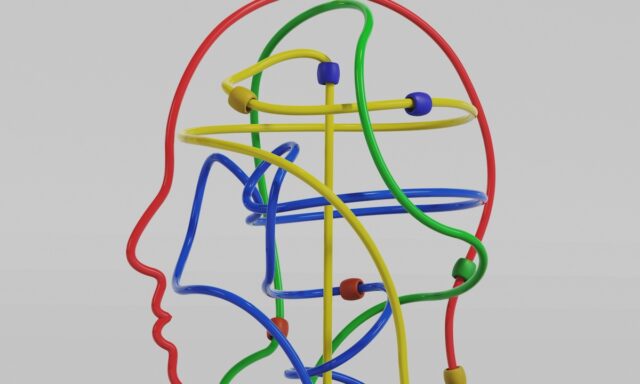What the government’s welfare reforms could mean for mental health crisis care
Zoe Seager
27 March 2025

As a former civil servant in the Department of Health and Social Care, I’ve seen first-hand the ways that policy decisions, however well intentioned, can ripple through the health and care system in harmful ways.
That’s why the recent announcement by chancellor Rachel Reeves about sweeping changes to welfare benefits has caught my attention — not just from a social justice perspective, but from a health system one too.
At Thalamos, we work every day with frontline professionals in crisis care. It’s at this point that mental health and financial hardship often intersect, sometimes catastrophically, in the moments that lead to someone being detained under the Mental Health Act or, even more tragically, taking their own lives. The proposed reforms to welfare risk sharpening that intersection. And this would be happening at a time when the legislative foundations of crisis care are shifting under our feet.
A quick recap of what’s changing
The welfare reforms, as outlined in the Spring Budget, include several significant changes for new claimants (subject to consultation and a vote):
- Health-related Universal Credit payments will no longer be automatically available based solely on a claimant’s physical or mental health diagnosis.
- Eligibility for Personal Independence Payment (PIP) will be tightened, so that only those who have the highest needs are able to access support.
- The health element of Universal Credit is being frozen in real terms, effectively reducing its value over time due to inflation and for new claims, it will reduce and then be frozen. However, the government will increase the Universal Credit standard allowance for new and existing claims above inflation from 2026-27, to address the imbalance between the standard and health elements.
- Work Capability Assessment will be removed, making the health element of Universal Credit solely based on PIP eligibility (i.e. how disabling their health condition is) rather than capability to work.
On paper, these changes are designed to promote independence and sustainability. A 2020 academic study titled Employment is a critical mental health intervention found that gaining employment can improve mental health, even for people with the most serious mental illnesses. This kind of thinking underpins the Individual Placement and Support (IPS) model, which provides hands-on, tailored help for people with severe mental illness (SMI) to find and sustain meaningful work.
IPS is now being rolled out across all NHS Mental Health Trusts as part of the (former) NHS Long Term Plan, and has been shown to significantly improve employment outcomes. So robust is the evidence base that the Office for Budget Responsibility scored IPS funding as having a measurable impact on national employment figures.
One early NHS adopter was South West London and St George’s, which used the approach in the 2000s. Others, such as Navigo in North East Lincolnshire, have built effective in-house employment and training programmes, with businesses run and staffed by current and former service users.
While the evidence for employment as a health intervention is compelling, it also complicates the current policy narrative. Supporting people into work can yield real gains — but removing the safety net risks undermining their ability to engage with that support in the first place.
However, when viewed through a mental health lens, the new welfare changes raise serious questions about long-term resilience — both for individuals and for the services that support them.
Economic insecurity and mental health: A risky combination
Financial insecurity is one of the most consistent predictors of mental health decline, as covered in detail by recent studies from King’s College London and the Mental Health Foundation. Without the safety net of accessible welfare support, more people are likely to experience deterioration in their mental health.
For many, the stress of losing support, or of navigating increasingly complex eligibility criteria, will increase the risk of crisis. Without the foundation of secure income, people are less able to engage with community mental health services, sustain housing, or stick to treatment plans.
These pressures can culminate in acute episodes that require urgent intervention — sometimes in the form of detention under the Mental Health Act.
Crisis services at capacity
Mental health crisis care is already overstretched, as covered in our recent look at a report from the Care Quality Commission. Detentions under the Mental Health Act remain high, and frontline services are struggling to meet rising demand. A surge in crises linked to economic hardship could overwhelm already thinly stretched systems.
And yet, we are on the cusp of a fundamental change to how the Mental Health Act works. The Mental Health Bill, currently progressing through Parliament, is designed to modernise the Act. It will place greater emphasis on patient autonomy, reducing inappropriate or coercive detention, and introducing stronger criteria for when someone can be sectioned.
This is a vital and long-overdue reform. At its core, it seeks to restore dignity and choice to individuals at their most vulnerable. But when paired with welfare restrictions that may increase the number of people arriving in crisis, the result could be a bottleneck: more people in need, but tighter standards on who qualifies for admission.
The risk is twofold. First, people may deteriorate further before receiving support. Not because detention thresholds have rightly been raised, but because community mental health services, which should be the primary support alongside primary care, are not yet consistently able to provide timely and sufficient support. Second, this inconsistency places even greater pressure on professionals, who are already navigating complex decisions within overstretched systems.
The unintended consequences
What we’re seeing is a misalignment of intent. On one hand, welfare reform is aiming to encourage greater independence and reduce long-term reliance on the state. On the other, the Mental Health Bill is working to ensure that individuals are only detained when absolutely necessary, and that their voice is central to decision-making.
But in practice, the removal of welfare support may push people into circumstances that strip them of choice and agency. It’s hard to talk meaningfully about autonomy when someone is facing eviction, food poverty, or unmanageable stress.
We could see the paradoxical outcome where people are less likely to meet the threshold for detention under a modernised Act — yet more likely to present in crisis because of systemic socio-economic pressures.
A call for joined-up thinking
From a policy point of view, the answer lies in prevention. Welfare support, when delivered effectively, acts as a crucial upstream intervention. It’s significantly cheaper (and more humane) than emergency or inpatient care.
As the Mental Health Act comes into law and we start to look at an implementation plan and statutory guidance, it’s critical that its roll out is considered alongside these wider welfare reforms. We need joined-up thinking across departments: health, work and pensions, justice, housing. Because none of these systems operate in isolation when someone is in crisis.
ICBs and Mental Health Trusts should prepare now — not only for changes to the Mental Health Act, but for the indirect impact of welfare reform. We must protect the principle at the heart of the Bill: that individuals deserve dignity, support and agency. This should be not just in hospital, but in their communities, too.
About the author

Zoe Seager
Client Director
Zoe is Client Director at Thalamos, leading all the client facing functions including programme implementation, customer success and business development. She came to Thalamos from the Department of Health and Social Care where she was Deputy Director for Mental Health Strategy and Delivery, working across Government, the NHS and public health bodies to develop and deliver strategies, policies and programmes to improve mental health outcomes in England. Before joining the civil service, she developed and delivered strategic projects and programmes for Wellcome, a philanthropic trust that supports science to solve urgent health problems.
Follow Zoe Seager



